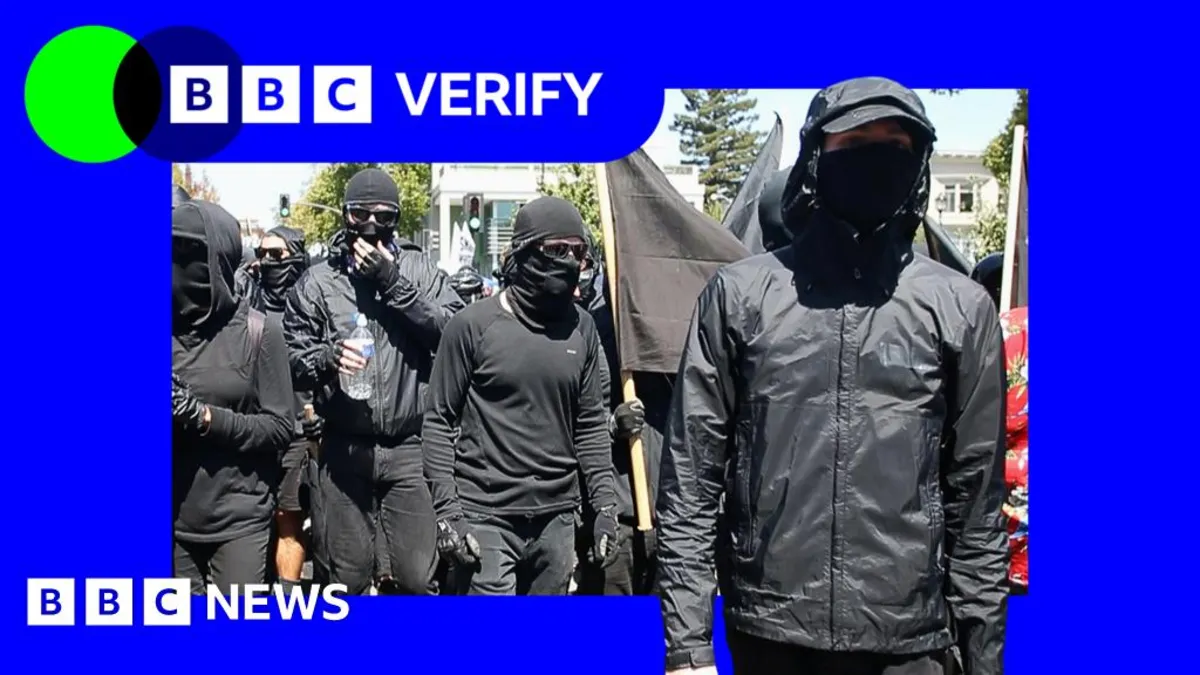
In a recent statement, US President Donald Trump declared his intention to designate Antifa as a major terrorist organization. This announcement follows the tragic death of conservative activist Charlie Kirk, and it appears to be part of Trump's ongoing efforts to combat what he perceives as the radical left. On his Truth Social platform, Trump described Antifa as a "sick, dangerous, radical left disaster" and pledged a thorough investigation into the group.
Antifa, or anti-fascist, is a decentralized movement comprising primarily far-left activists who oppose far-right, racist, and fascist ideologies. Trump's longstanding animosity towards Antifa is well-documented, but experts have raised concerns about how he plans to effectively target this loosely organized group, which lacks a singular leader, membership list, or formal structure. In 2020, former FBI Director Christopher Wray informed Congress that Antifa is more accurately described as an ideology rather than a traditional organization.
Antifa is derived from the German term "antifaschistisch," referencing a German anti-fascist group from the 1930s. Although Antifa's roots in the US extend back several decades, it gained significant visibility following Trump's election in 2016 and the violent far-right rally in Charlottesville in 2017. This led to various anti-fascist factions coalescing in response to rising right-wing extremism.
The lack of a centralized organization means that Antifa cells often form organically, both online and offline. Participants in these cells include anarchists, communists, and hardline socialists who generally share anti-government, anti-capitalist, pro-LGBTQ, and pro-immigration values. However, the term "Antifa" is sometimes used broadly by conservative politicians and commentators to encompass other liberal or left-leaning groups they oppose.
Critics assert that what sets Antifa apart from mainstream left-wing groups is the willingness of some activists to engage in violence to advance their agenda, which they often justify as self-defense. Many activists are known to wear dark clothing and masks during public demonstrations. Videos have surfaced showing some individuals wielding clubs, shields, and pepper spray during rallies.
A notable incident occurred in 2017 when approximately 100 masked Antifa activists attacked right-wing protesters in Berkeley, California, resulting in multiple arrests. Furthermore, during the protests following George Floyd's death in 2020, a self-identified Antifa activist shot and killed a member of the far-right group Patriot Prayer. This incident further fueled the narrative surrounding Antifa’s violent tendencies.
Additionally, anti-fascist activists frequently engage in doxxing, the practice of publicly revealing the personal information of individuals they identify as far-right activists. This tactic aims to have these individuals dismissed from their jobs and socially ostracized. In the aftermath of Charlie Kirk's murder, BBC Verify noted that some self-identified Antifa members defended the shooting on platforms like Reddit and X.
Despite Trump's bold proclamation, he has not clarified how he intends to officially designate Antifa as a terrorist organization. The US government has the authority to label a group as a Foreign Terror Organization (FTO), but the legal criteria specify that the group must be foreign. This designation allows for members to be banned from the US and enables the government to seize funding and target donors.
Currently, there is no established legal framework for designating any group as a domestic terrorist organization. Luke Baumgartner, a research fellow at George Washington University, pointed out that Trump’s declaration may lack substance without congressional action. Furthermore, legal experts have indicated that the First Amendment rights protecting free speech could hinder Trump's ability to implement such a designation.
This isn't the first instance of Trump targeting Antifa; he previously threatened to declare the group a terrorist organization in 2020 but did not follow through. His latest comments coincide with a broader campaign against the radical left, particularly in light of Charlie Kirk's murder. Trump stated, "Radical left political violence has hurt too many innocent people and taken too many lives." Tyler Robinson, the individual accused of Kirk's murder, reportedly held a leftist ideology, although he has not been directly linked to Antifa.
Recent developments have raised questions about the nature of political violence in the US. The Department of Justice (DoJ) recently removed a study indicating that far-right extremism outpaces other forms of political violence in the country. BBC Verify has reviewed multiple independent studies suggesting that instances of political violence committed by right-wing individuals exceed those perpetrated by left-wing individuals.
However, measuring trends in political violence remains challenging due to the absence of a consistent definition of right and left ideologies. Professor Robert Pape of the University of Chicago noted alarming trends in political assassinations and attempted assassinations, affecting both Republican and Democratic politicians. He emphasized that blaming one side for violence may inadvertently increase support for political violence overall.
As the discourse surrounding Antifa continues to evolve, the implications of Trump's proposed designation and its potential impact on free speech rights and political discourse in the US remain critical areas of focus.